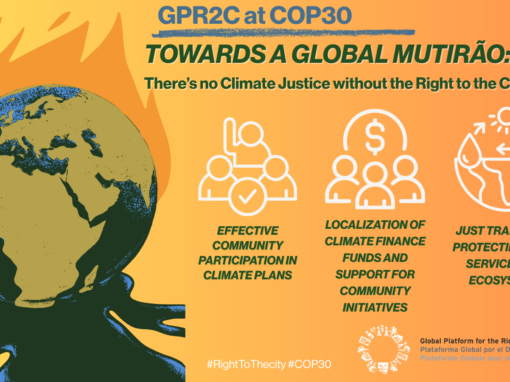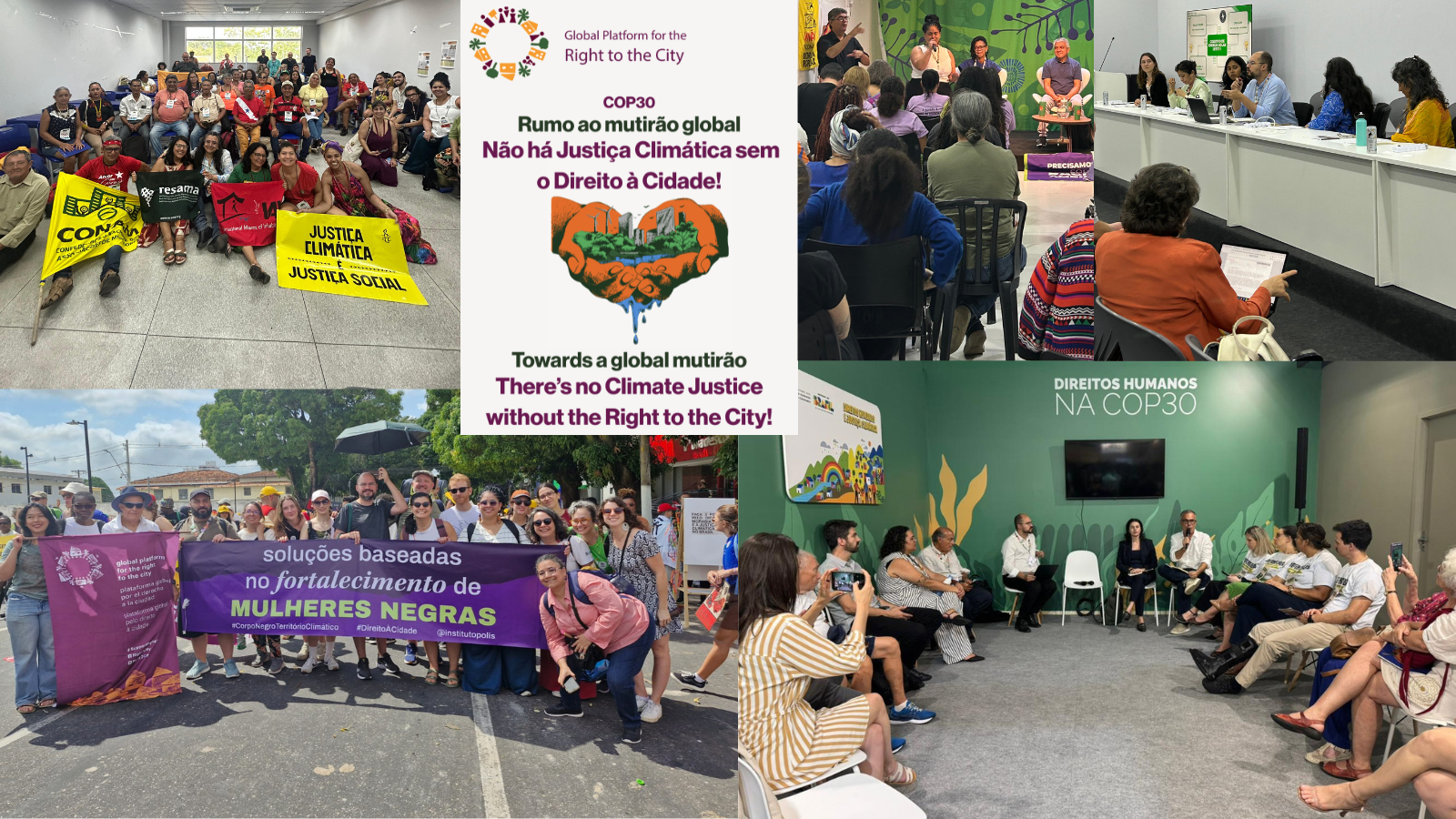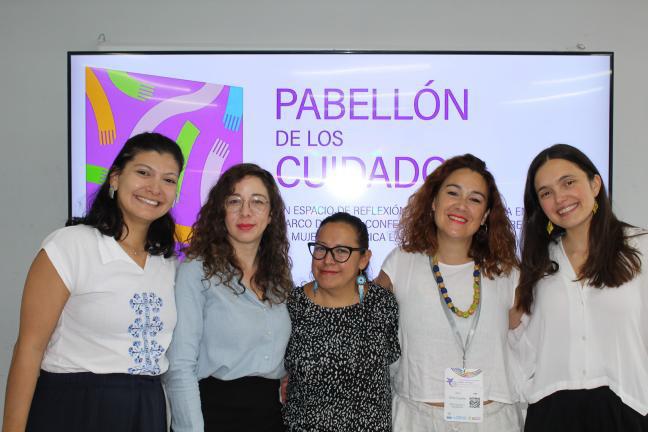The approval of the New Urban Agenda (NUA), as a result of the Habitat III Conference (Quito, 2016), certainly represents an advance for the recognition of the right to the city by international organizations and countries. But this step alone is not enough to overcome the challenges that historically impose on the agenda of the right to the city. More than that, the process of elaborating the NUA made evident the limits and barriers of international negotiation and the divergent conceptions about the urban.
These topics were discussed in a debate promoted by the GPR2C and Pólis Institute in São Paulo, last May 29th, with the participation of Ana Falú (University of Córdoba), Lorena Zarate (Habitat International Coalition) and Nelson Saule Junior (Pólis Institute).
Although it brings important elements of the right to the city, especially in paragraphs 11 and 13 (equal enjoyment and use of cities; just and safe human settlements and cities; social and ecological function of land; gender equality etc.), some central components of this right were not recognized in the NUA.
One of the most obvious examples is the absence of any reference to democracy, a fundamental and inalienable value for cities to be truly fair. In countries that are subject to authoritarian regimes or, like Brazil, are experiencing serious political disruptions, life in cities is going worst. There must be a genuine commitment to democracy at the various scales of government (national, subnational and local), and also an enlargement of the idea of citizenship and participation, valuing more horizontal and transparent processes.
In a context of conservatism and setbacks in relation to human rights, with discriminatory practices against immigrants and refugees, the struggle for democratic values is crucial.
Another component is the recognition of diversity and the right to identity in cities, which is distinct from simply stating “cities for all.” The differences of income and wealth do not fully explain the access or exclusion of people to the benefits generated by cities. Factors such as race, gender, sexual orientation, origin, among others, are structural of social relations that permeate the urban. It must be made clear that women, black people and transgender people, for example, are affected completely differently from urban policies.
Finally, we need to make progress in recognizing that cities are commons. There is a right to occupy and transform cities in favor of collective interests, surpassing values of exchange and the commodification of the urban.
By Henrique Botelho Frota
Executive Secretary of the Brazilian Institute of Urban Law and member of Pólis Institute, organizations that are part of the Global Platform for the Right to the City (GPR2C).
* Para ver el video del evento, haga clic aquí.





